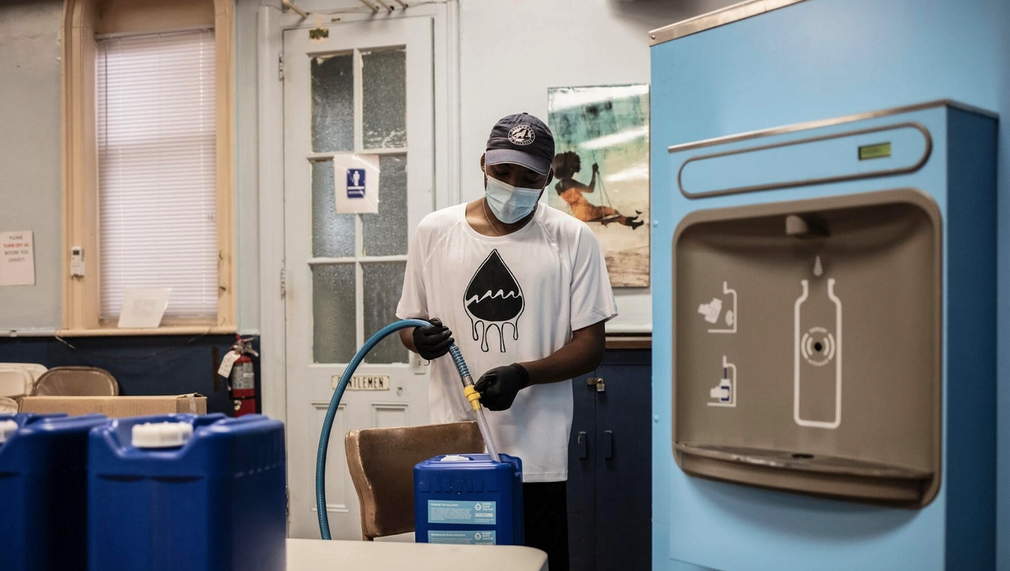Drinking Water Safety in South-central LA
We will test the drinking water in 5,000 homes in areas of South Central Los Angeles with aging infrastructure for toxins that can result in cognitive issues and other negative health outcomes. The tests will measure the water quality coming out of the kitchen tap in each home, and upload the results to a central database for analysis and reporting. Residents will be provided with the results, their level of risk, and those with a high risk will be connected to community organizations that can provide their families with clean drinking water.

What is the primary issue area that your application will impact?
Climate and Environment
In which areas of Los Angeles will you be directly working?
Central LA
South LA
In what stage of innovation is this project, program, or initiative?
Expand existing project, program, or initiative
What is your understanding of the issue that you are seeking to address?
We believe that water is a human right. Due to a history of disinvestment in municipal water infrastructure, residents of South Central Los Angeles face a risk of exposure to drinking water contaminated by lead and other toxins. Lead exposure can harm a child's health, damaging the brain and nervous system, causing learning, hearing, speech and behavioral problems. Lead piping was banned in 1986 yet lead remains a health hazard in communities across the country. The Los Angeles County water utility provides public water quality reports at the systems level. These reports do not account for differences between affluent communities and communities with concentrated poverty, where the water infrastructure has suffered from systemic disinvestment. Consequently, the 163,000 residents of South Central Los Angeles are largely unaware of the safety of the drinking water in their homes and the danger of exposure to lead and other toxins.
Describe the project, program, or initiative this grant will support to address the issue.
The project will test drinking water in 5000 homes in South-Central Los Angeles for high levels of lead, copper, and other contaminants. This information will assist residents in obtaining safe water, advocating for line replacement and filters. The project activities include: test plan development, training test administrators, at-home testing, survey of residents, data integration and reporting. The test plan will be developed with input from participating community organizations. The test plan will include the sampling method, survey design, and recruitment strategy. The study will employ a stratified sample strategy based on the year of housing construction to identify study participants recognizing that housing age is a significant predictor of lead levels. Study participants will have the option of completing a health questionnaire that includes indicators of lead contamination. Participants will be provided with test results for their residence and have the option to receive support from community organizations. Tests will be administered using optically-scanned water test strips. The test results will be uploaded to a database and used to produce maps indicating the presence and levels of contaminants. 501CTHREE will manage data integration and produce the final reports and dashboard. Individual test results will be provided to the residents, and residents will have the option to be contacted post-project for support.
Describe how Los Angeles County will be different if your work is successful.
This project will improve long-term municipal service delivery and equitable investment in the built environment to ensure safe access to water. Comprehensive data collection will enable the development of more sophisticated water safety indicators, easier, quicker testing and access to information specific to the household level. This improved transparency will lead to clearer knowledge of where water quality issues exist and improved ability to predict incidents of water contamination. Engaging community organizations will facilitate targeted interventions, improved community health outcomes, greater trust in municipal water, enhanced ability for communities to self-advocate for more equitable water service for all residents. The immediate impact will activate a coalition of organizations with mutual interest in water safety, training of community members to more effectively engage others on water infrastructure and expanded dataset on water safety in at-risk communities.
What evidence do you have that this project, program, or initiative is or will be successful, and how will you define and measure success?
This is an extension of the Water Box program, which serves residents in Watts whose water is unsafe to drink. 501CTHREE has worked with community partners in Watts to test 800 homes to determine where targeted interventions are needed. This project will expand that effort to cover all of South Central Los Angeles. Success of previous efforts is evidenced by the demand for testing, water box programming and services by existing partnerships and their constituents.
Approximately how many people will be impacted by this project, program, or initiative?
Direct Impact: 5,000
Indirect Impact: 163,551